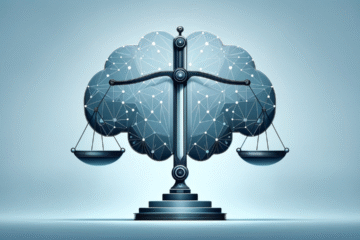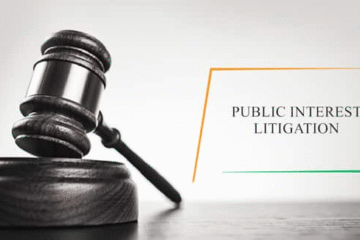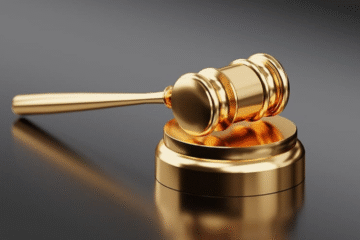
This Article is written by Supriya of 1st year of B.A.LL. B (HONS) ofS.S Khanna Girls’ Degree College, University of Allahabad
Abstract –
Executive powers refer to those powers which are exercised by the council of ministers in the name of Governor. Hence Governor is only nominal head and council of ministers is the real executive. The following posts are appointed by Governor and hold office during his term: Chief Minister of the state, other ministers of the state on the advice of Chief Minister, Advocate General. He can recommend the imposition of constitutional emergency in a state to the President. During the period of the President’s rule in a state, the governor enjoys extensive executive powers as an agent of the President.
Keywords
Executive, Legislative, De Jure, De Facto, Assent, Constitutional, Statutory, Administrative
Introduction-
The superintendent of state Composition 153 to 167 of the Indian constitution is Governor. According to composition- 154 of the constitution all the power of superintendent of state is vested in the governor. Composition 166(1) says that the administration of the state will run by the name of the Governor. During President rule in state the Governor will run the administration of state on the behalf of the central government. State government done all the administrative action is taken by the name of the governor. Any rules or order are made by a specifying manner and it’s considered to be authentic by the name of the governor. Governors can also make a rule for further conducive deals of the business or trade of the state government. Governor is also present or acts as the chancellor of the state universities and also appoints the vice chancellor of universities in state. Governor has power to appoint the Tribal Welfare Minister in the countries of Chhattisgarh, Jharkhand, Madhya Pradesh and Odisha and Bihar was barred by 94th Amendment Act, 2006.
Nominal head & Real head
The Governor is the De jure of the state and the Chief Minister is the De facto of the state.
Governor is appointed by the President and he’s the nominal head of the state cause he has power to appoint the ensuing government officers
1. The Chief Minister is appointed by the Governor and the Council of Ministers is appointed by the governor with the consultation of the Chief Minister.
2. Advocate General of the state, president, members of state public service commission, quarter judge, president of state election commission are appointed by the Governor.
3. All the bills are passed by the assent of the governor and he cannot delay an exigency in the state but can recommend the duty of an indigenous exigency to the President. The Chief Minister is called the real head of the Government because he’s the tagged head.
The Chief Minister is appointed by the Governor and other ministers in state are appointed by him by the advice of the Chief Minister. Any demand of supplementary help in legislative division can be raised by the authorization of the governor only.
Chairman and members of state public service commission (SPSC)
Chairman and other members of State Public Service Commission are also appointed by the governor. The decision and recommendation of the state Public service commission is advisory in nature not binding in nature. However, they are removed only by the President.
Advocate General –
Under the Constitution of India Article 165 has provided for the office of the advocate general for the states. He is the highest law officer in the state. Thus he corresponds to the Attorney General of India.
The Advocate General is the part of the state executive and he is the first or highest law officer of the state. He is also appointed by the Governor and he is the legal advisor of the state government. The Advocate General holds his office till the pleasure of the governor. The remuneration of the advocate general is not fixed by the Constitution. He receives such remuneration as the governor may determine.
State Election Commissioner
Election commissions are one of the bulwarks of the democratic system in India and thus securing their institutional integrity is a task that falls on all three branches —executive, judiciary and legislature. The unwarranted interference by one organ of the state in the functioning of others should be discouraged to achieve a robust electoral system.
Governor appoints the state Election Commissioner and decides the tenure and condition of the service. However, election Commissioner is only impeached from his office in like manner and on like grounds of a state High Court judge by the President on the recommendation or advice of the parliament.
Vice – chancellors
In the universities the state Governor is the vice chancellor. He appoints vice – chancellor in various universities. As Chancellor, the Governor also lead over the Convocation of the State Universities, whenever present.
District Judges –
According to Article 233 of the Indian constitution, the Governor of the state appointed the District judge, his promotion and posting is also done by the Governor with the consultation of the High Court. The district judiciary performs an important role in upholding the rule of law. The district judiciary plays an important role in achieving the preambular goal of justice by ensuring access to justice for litigants.
The district judiciary, being the most accessible court for litigants, serves as the primary interface between the justice system and the people.
Role in President ‘S Rule-
The Governor has extensive executive powers in terms of imposition of emergency in the state under Article 356.Under this article, the Governor can send a report to the President and recommend constitutional emergency on the ground that government of the state cannot be carried on in accordance with the provisions of the Constitution.
There are some conditions that the President has to consider before imposing the rule:
a) If the President is satisfied that a situation has arisen in which the government of the state cannot be carried on in accordance with the provisions of the Constitution.
b) The state government is unable to elect a leader as chief minister within a time prescribed by the Governor of that state.
c) There’s a breakdown of a coalition leading to the chief minister having a minority support in the House, and the CM fails to prove majority in the given period of time.
d) Loss of majority in the Assembly due to a vote of no-confidence in the House.
e) Elections postponed on account of situations like natural disasters, war or epidemic
Case law-
1.In Sanjeevi Naidu v. State of Madras it was held that –
The Governor is essentially a constitutional head and the Government is run by the Council of Ministers. All the matters in which in which the Governor is specifically required to act in his discretion have to be decided by Council of Ministers.
2.In U.P.P.S.C. v. Suresh Chandra, the Supreme Court following the Shamsher Singh has held that the Governor is bound by the Council of Ministers in matters of all executive importance.
These discretionary powers exist only when they are expressly spelt out, and even these are left to the full discretion of the Governor, but are remote controlled by the Union Ministry which are answerable to the Parliament for those actions. In all the constitutional functions of the Governor it is the ministers who act.
II.A—Difference between Constitutional and Statutory discretion.
Under Article 163(1) of the Constitution the Governor has been given discretion only in relation to his function under the Constitution, he is required to exercise in his discretion. The grant of sanction under 197 of Cr.P.C is statutory function of the State Government and cannot be said to be discretionary function of the Governor under the constitution. This is not a matter in respect to which the Governor is required under the Constitution to act in his discretion and he has to act on the advice of the Council of Ministers.
Therefore, the general rule must prevail and the Governor must act in the sphere as per advice of the Council of Minister and not contrary to it. If this power is conceded to the Governor, it would open the flood gates for the exercise of the discretionary power of by the Governor in all cases where the decision of the Council of Ministers is considered inept or inappropriate by the Governor. That would amount conferring the power of review on the Governor in respect of the decisions taken by the Council of Ministers which is answerable to the Legislative Assembly and the people. That would be against the spirit of the Constitution which has established the Cabinet form of the Government in State also. That would bring diarchy as indicated in the case of Shamsher Singh.
The interpretation of a provision of the Constitution would not differ or deflect simply because of the possibility of abuse of power by the Council of Ministers in a given case. The Constitution has reposed greater faith in the Council of Ministers answerable to the people and it is expected that it would consider even the question of grant of sanction for prosecution of its Minister in a detached and dispassionate manner upholding the rule of law and cause of justice. There is a presumption that the decisions of the Council of Ministers have been arrived at rightly and regularly and not to shield the guilty. Hence, the Governor if at all has discretion would be under the Constitution, and not under any Statute.
Therefore the petitioners would like draw the attention of this Hon’ble Court to the difference between the Constitutional discretion and statutory discretion, and here in the instant case the question is in relevance to the discretion of the Governor in relation to Cr.P.C, therefore, the Governor should not have any discretionary power in this matter.
3.. The Supreme Court in S.R. Bommai v. Union of India saw that at whatever point an uncertainty emerges whether a service has lost the certainty of the House, the primary method for testing is on the floor of the House.
Clearly, the evaluation of the quality of the Ministry had not been left to the Governor. This reality was affirmed when Uttar Pradesh Governor rejected Kalyan Singh’s Government on Feb. 21, 1998 as 25 M.L. As of Lok Tantrik Congress and Janata Dal (Raja Ram) Group pulled back help, and it was left in the minority. Kalyan Singh would not leave. Subsequently, he was rejected. Governor did not allow him to look for certainty vote on the floor of the House. Allahabad High Court in a milestone between time requests reinstalled Kalyan Singh and left it to the Governor to request a preliminary of solidarity on the floor of the House.
1.1970 AIR 1102, 1970 SCR (3) 505
2.2022 Latest Caselaw 429 SC
3.1994 AIR 1918, 1994 SCC (3), 1, JT 1994 (2)215, 1994 SCALE (2)37
Conclusion-
The Governor is the state’s chief executive and has a wide range of duties and responsibilities; he may or may not enact laws to facilitate the state government’s business operations. In addition, he has the authority to call a special session of the state legislature and dissolve state legislative assemblies. The core duties, powers and functions of governor include looking over the state budget put out in the state legislature, among other things.
References–
https://www.constitutionofindia.net/articles/article-154-executive-power-of-state/
https://byjus.com/free-ias-prep/governor/
https://upgovernor.gov.in/en/page/constitutional-role-of-the-governor
https://www.legalserviceindia.com/legal/article-1069-role-of-governor.html




0 Comments